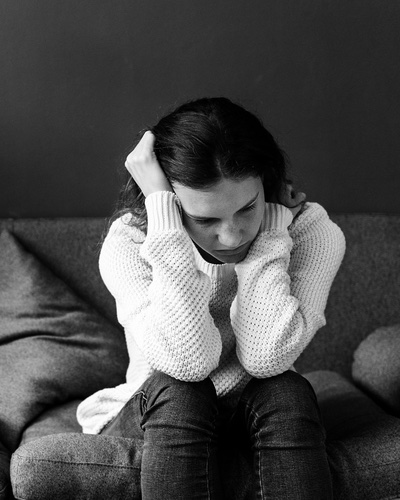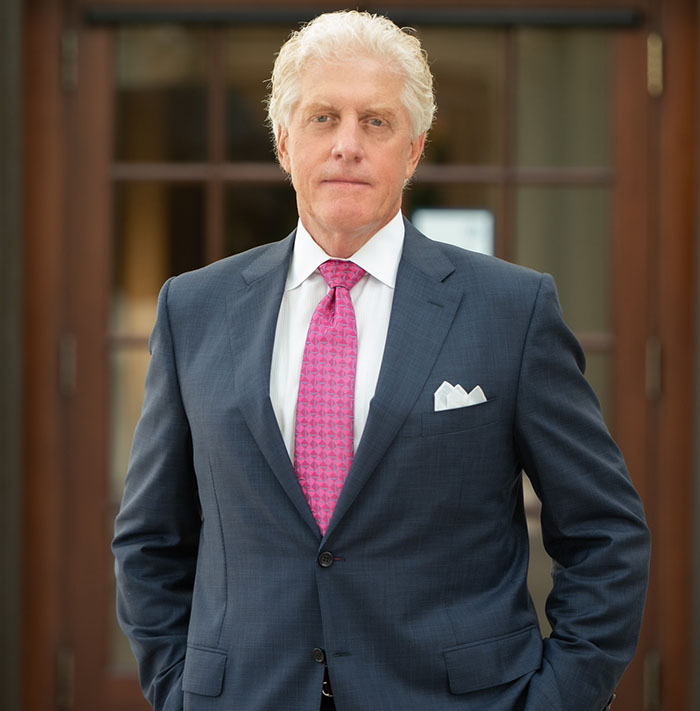There are many opinions regarding the grip social media has on our lives. Is it good? Is it bad? Is it necessary? Whatever your opinion, social media is here to stay, and its role in our lives, particularly among kids and young adults, has raised serious mental health concerns about its addictive potential.
Over the past few years, lawsuits have been filed against social media companies like Facebook, Instagram, and TikTok. Plaintiffs allege that the social media platforms are designed to lead to problematic behaviors and mental health problems.
If you or a loved one experienced physical and psychological harm due to social media addiction, contact a personal injury lawyer at Regan Zambri Long. We offer a free case review to discuss what you’re going through, how the social media giants may have contributed to your suffering, and your options for legal action.
Contact Us Today to Schedule
A Free Consultation
Currently, “social media addiction” is not an official diagnosis. However, it is now used to describe a problematic behavioral pattern. People with social media addiction (both kids and adults) use social media excessively. The constant usage hurts the person’s mental health and daily life. Recent studies have shown two chemical releases in the body that are directly related to social media use, causing harm to the users.
The first chemical scientists have studied regarding social media use is dopamine, which was discovered in 1957. It’s called the “feel good” hormone that serves as the brain’s primary reward and pleasure neurotransmitter. Some know it as the brain’s reward center. There is a misnomer regarding dopamine—the chemical does not produce pleasure. Instead, it motivates a person to do things we think will please us.
For years, scientists have used dopamine to measure the addictive potential of any experience. The higher the dopamine is released, the more addictive something is considered.
Anticipation and participation in what pleases us release a spike in dopamine. When the activity is finished, we experience a dopamine dip. To elevate our moods again, we’re constantly binging on pleasurable things (like TikTok or Instagram accounts). The brain compensates for the binge by bringing us lower and lower in the dopamine dip to maintain homeostasis. Each time we use social media, it becomes less enjoyable, deepening the dependency on the addiction. With substances like drugs, people run out of money to buy them to feed their addiction. With social media, there is an endless supply.
While dopamine affects our mental health, another chemical released in the body during social media use can also affect our physical health. According to a 2022 Cyberpsychology, Behavior, and Social Networking study, social media use positively correlated with higher C-reactive protein (CRP) levels.
CRP is an indication of chronic inflammation in the body, which can lead to chronic fatigue, depression, anxiety, gastrointestinal complications, weight gain or loss, and infection. The study also found that higher use of social media was correlated to more visits to the doctor or health centers for an illness.
If you believe your child is a victim of social media addiction, contact the experienced personal injury lawyers at Regan Zambri Long to understand your legal options.
Young people are especially susceptible to social media addiction. Children and teenagers are still developing their sense of identity, which various factors, including social media algorithms, can influence.
Constant exposure to social media can overstimulate a child’s dopamine release, leading to an absolute dependence on the chemical. This leads to the child prioritizing social media usage over real-world activities and responsibilities.
If you believe your child’s mental health has been affected by social media companies, reach out to a Regan Zambri Long social media addiction lawyer to explore the possibility of a lawsuit.

Signs of social media addiction can come out in various ways. Here are some of the most common signs of addictive behavior to watch out for in young users:
The constant allure of social media can have a significant downside for children’s mental well-being. Studies have linked excessive social media use with a rise in depression, social comparison, anxiety, and negative body image. It fuels inner turmoil by comparing themselves to others and feeling left out and isolated. Seeing carefully curated images and highlight reels of their peers’ lives can make them feel inadequate or not good enough. This constant comparison can lead to feelings of insecurity and low self-worth.
Moreover, social media platforms can become breeding grounds for cyberbullying and harassment. Social media’s veil of anonymity often emboldens individuals to engage in harmful behavior, such as making hurtful comments or spreading rumors. This can have a detrimental effect on a child’s mental health, leading to increased stress, anxiety, and even thoughts of self-harm.
Additionally, the addictive nature of social media can disrupt a child’s sleep patterns. Late-night scrolling and constant notifications can interfere with their ability to get a good night’s rest.
Parents and guardians must be vigilant in monitoring their children’s social media usage and establish healthy boundaries. Encouraging offline activities, fostering face-to-face social interactions, and promoting a positive self-image are steps in mitigating the negative effects of social media on children’s mental health.
A social media addiction claim filed in the Northern District of California is suing four major social media giants – Meta platforms, which is Facebook, Instagram, and Siculus; Snap Inc., which is Snapchat; Bytedance LTD, which is TikTok; and Google, LLC, which is Youtube. The social media lawsuit is representing the children who suffered personal injuries and, in cases of death, the personal representatives of their estates.
The claim argues that the tech giants are targeting children to use and become addicted to their platforms. Facebook’s feed switched to an engagement-based ranking system in 2009, and Instagram followed suit in 2016. 2018, a redesign introduced the “meaningful social interaction” (MSI) algorithm. While Meta asserts that MSI promotes meaningful engagement, lawsuits related to social media contend that it results in negative feedback, subjecting users to more upsetting or harmful content based on their past interactions. As a result, the children have suffered physical and psychological harm and are part of an ongoing mental health crisis in the United States.
The signs of social media addiction in children turn into real-life consequences and injuries — both physical and mental. We’re going to break down the effects social media sites have on children and teenagers in two categories – psychological injuries and physical impacts.
Many social media lawsuits focus on the psychological harm social media platforms can inflict on children. Excessive social media use has been linked to a rise in depression, anxiety, and negative body image.
Psychological harm includes:
Constantly knowing what other people are up to via Instagram, TikTok, and other social media platforms can cause kids to feel like they’re missing out. Children who see fun things happening on other kids’ social media accounts feel isolated and lonely. That feeling turns into an actual fear of missing out, causing severe anxiety, depression, inability to focus, and other mental health effects.
Consuming only the highlights of other people’s lives gives social media users a false sense that their lives are much better. Users of all ages are susceptible to feeling like their lives don’t match their peers on social media, leading to low self-esteem.
Body dysmorphic disorder (BDD) is a mental health condition where the person is obsessively focused on perceived flaws or defects in their physical appearance. Social media apps are notorious for unrealistic filters, making users seem flawless when posting a video or picture.
Social media addiction lawsuits argue that social media companies promote unrealistic beauty standards that cause people of all ages, but especially children and teenage girls, to try to attain unreachable physical perfection. This distorts their perception of their own body, beauty, and worth.
Cyberbullying is the use of technology, particularly social media, to harass, threaten, embarrass, or target another person. It can include threats, texts, tweets, posts, or direct messages.
Unfortunately, cyberbullying is rampant on social media apps, especially among younger kids. Experiencing this kind of targeting and harassment can lead to mental health effects of severe anxiety, depression, low self-worth, and suicidal thoughts.
Suicidal ideation (SI) is used to describe contemplating, wishing, or being preoccupied with death and suicide. According to the Center for Behavioral Health Statistics Quality, a full 6% of 18-25-year-olds affirmed they had seriously considered killing themselves in the past 12 months.
Social media lawsuits argue that constant exposure to curated images, cyberbullying, and pressure to conform to societal expectations contribute to despair, depression, and suicidal ideation.
Other mental health issues these lawsuits allege are:
Adolescent addiction to social media does not only present psychological problems but physical harm as well. Social media can significantly impact a child’s ability to function in the real world. Excessive screen time can lead to procrastination, difficulty concentrating, and disrupted sleep patterns.
Some of the more dangerous physical harm caused by social media apps are:
An eating disorder is a severe disturbance in people’s eating behaviors and related thoughts and emotions. An individual who suffers from an eating disorder is preoccupied with food intake, body weight, and shape. Common eating disorders include anorexia nervosa, bulimia nervosa, and binge-eating disorder.
As reported in the Washington Post, social media companies allow their platforms to emphasize appearance, body image, and lifestyle. The app’s filters often generate these things and are not attainable in real life. Addicted teens, particularly teen girls, become obsessed with looking like the people they see on social media, focusing on their weight, appearance, and body image. Eating disorders are serious illnesses potentially leading to life-threatening illness and death.

Think about it: have you ever been conversing with someone when they pulled out their phone and needed to look at a social media app? That is a classic sign of addiction.
People, especially children with ADD and ADHD, have trouble paying attention, controlling impulsive behaviors, or being overly active. The continuous stimuli provided by social media addiction post a constantly different environment associated with ADD and ADHD.
Increased and constant stimulation, particularly close to bedtime, overstimulates the brain, making it difficult for individuals to relax, unwind, and pay attention.
Blue light exposure has become a problem in our society, as people look at screens constantly. Exposure to a screen’s blue light, even a couple of hours per day, can slow or entirely stop the release of the sleep hormone melatonin.
A social media addiction lawsuit may also allege the following types of physical harm from social media sites:
If you believe your child has suffered physical or mental harm from social media addiction, speak to the attorneys at Regan Zambri Long. We will file a social media harm lawsuit on behalf of you and your family and hold the social media companies accountable for failing to warn users about the addictive nature of their platforms.
Because these types of personal injury lawsuits are relatively new, knowing if you qualify to join the legal action may be challenging. If you are considering joining a mass tort lawsuit against social media companies, here’s what you need to know:
A social media addiction lawsuit will be treated like other personal injury lawsuits. That means the plaintiffs must prove the defendant had a duty of care, breached the duty of care, directly caused injuries, and have economic and non-economic damages as a result.
Other criteria needed to qualify for a social media addiction class action

Multi-district litigation is a bunch of smaller lawsuits against social media companies. To avoid wasting time and getting different rulings in courts across the country, a federal court takes charge of combined cases instead. This court oversees evidence gathering, discovery, and other preliminary steps before trial to streamline the process and get faster results.
Sometimes, a few lawsuits go to trial first as a test run. These are called “bellwether” cases. Their outcomes can influence settlement talks, which are attempts to resolve the cases outside of court. MDLs often lead to settlements that benefit both sides by avoiding the costs and uncertainties of a full trial.
Ultimately, depending on the situation, the court might send individual cases back to their original courthouses for trial or keep them together. Eligible plaintiffs could receive compensation if a settlement is reached or the lawsuits succeed.
No settlements have been reached in a social media lawsuit, so damages are unknown. However, plaintiffs are fighting for compensation for economic and non-economic damages, as well as punitive damages.
Economic damages are tangible losses with actual receipts attached. They can include medical expenses, rehabilitative and therapeutic costs, a parent’s lost wages if they had to leave work to care for their sick child, and funeral and burial costs.
Non-economic damages are intangible. They include emotional trauma, pain and suffering, and the anguish that comes along with mental health issues.
Finally, plaintiffs are seeking punitive damages from social media companies. Punitive damages are money paid out on top of compensatory damages. Rather than award the victim, they are meant to punish the defendant. Punitive damages are intended to deter the defendants from being grossly negligent in the future.
The relentless negative impact and addictive qualities of Facebook, Instagram, Snapchat, and TikTok pose a serious threat to our children’s mental health and physical safety. It’s time to hold these tech companies accountable for their addictive design choices. We can’t stand silently as our children continue to struggle.
The experienced attorneys at Regan Zambri Long deeply understand what you and your family are going through. You do not have to take on this fight alone. Call our personal injury lawyers today if you believe you have a legal claim related to the adverse impacts of social media on your child. This is especially important as there are statutes of limitations to be considered.
Our legal team offers a free consultation to discuss your situation and answer questions. We practice in DC, Maryland and Virginia. Let’s work together to safeguard vulnerable users.